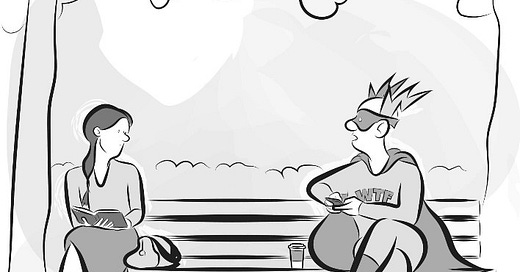The long shadows of GDR.
The kremlin reaps what the Soviet sowed in Eastern Germany after the WWII.
This is the English version of my letter to newspapers published in Kristianstadsbladet and Norra Skåne on 30 December.
Research of the effects of economic and political systems on people's attitudes and behaviour shows that people who grew up under communist rule are more dishonest and corrupt and have less solidarity than people who grew up in free countries. A study by the University of Leipzig shows that the communist rule in the former GDR also made people there more susceptible to conspiracy theories and more sympathetic to authoritarian regimes.
Source: Some clever guy on the Internet.
The population is also positively disposed towards the kremlin. The extremist parties AfD and BSW, which support the Kremlin's genocidal war against Ukraine, have strong support in the former GDR. Regional elections were held in three regions there last autumn. In Thuringia, the AfD became the largest party and the BSW the third largest party. Die Linke, which is divided in its views on the kremlin, became the fourth largest party. Together, the three parties received 60% of the vote. In nearby Saxony, where the CDU received the most votes, the three extremist parties received 47%. In Brandenburg, they received 45%. AfD and BSW as well as parts of Die Linke oppose German support for Ukraine's defense against the fascist dictatorship Russia's colonial war. The parties are cooperating with the kremlin in this opposition, which has been noted by German security services.
New elections to the Bundestag will be held in Germany in the spring. If the fascists win a majority and form a government, it will not only affect Germany's support for Ukraine. It will also have effects on NATO, which is the kremlin's goal. Ukraine is only the first step in the kremlin's ambitions to restore the Russian empire. If Ukraine falls, the Baltics and Moldova are next in line. A pro-muscovite German government could prevent Germany from contributing militarily to the defense of these countries according to NATO's Article 5.
After the latest Swedish defense policy decision, the Defense Minister said that changes to it may be relevant if its conditions change. We may need to reconsider the defense decision already after the German new elections this spring.




